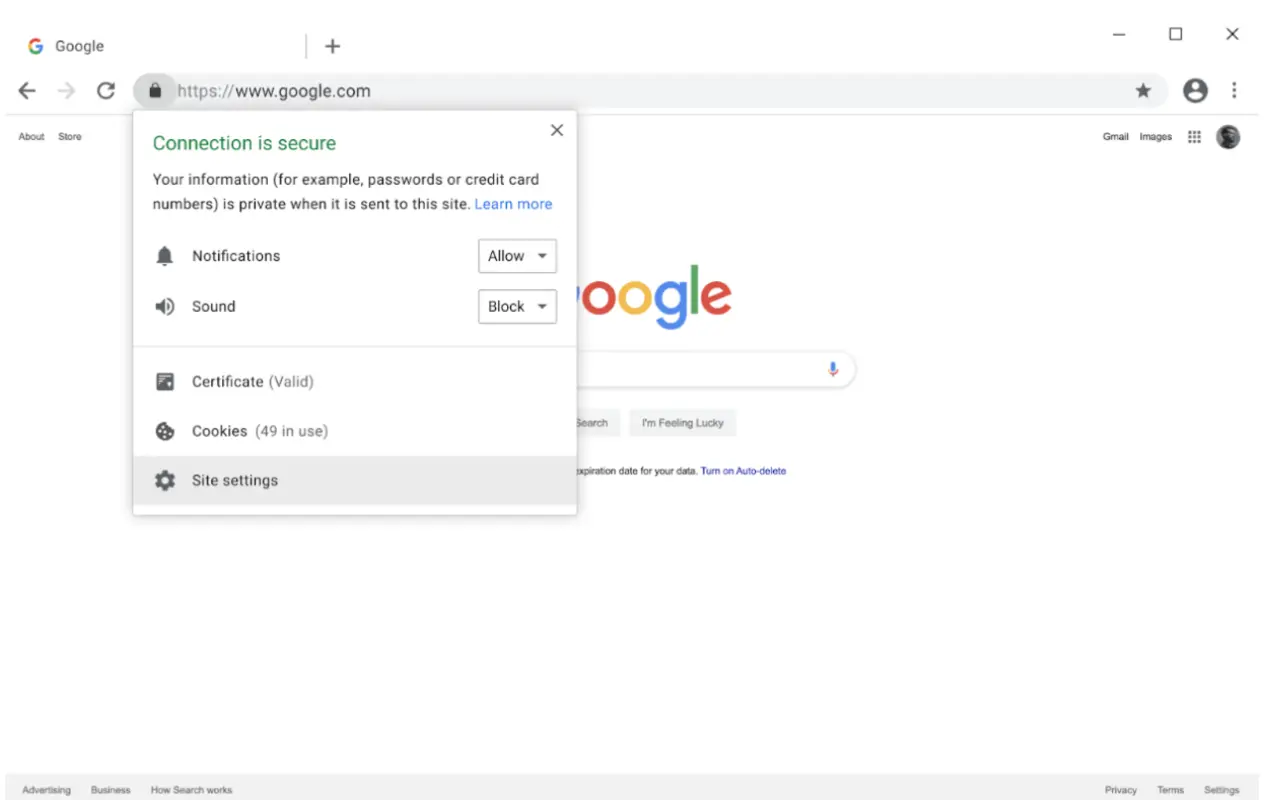Black Friday and Cyber Monday are just around the corner. For most of us, it's time to start thinking about holiday shopping.
From crowded stores and busy travel schedules to extended gift-buying deadlines and spending limits, the holiday season poses unique challenges that many shoppers aren't used to facing year-round.
Skip to:
- What to Know About Cyber Attacks During the Holiday Season
- 10 Handy Tips for Safe Online Holiday Shopping

Custom image created in Canva
When you plan to do some online shopping, you might wonder what the safest ways of browsing and buying from sites like Amazon, Target, or other vendors are.
Nobody wants to give out sensitive and personal information or pay for something with their credit card, which results in many spam emails for months afterward.
Over the coming weeks, you can prevent cyber attacks and stay safe while browsing and buying from eCommerce sites.
Whether you do most of your shopping on a desktop, mobile device, or both, there are some excellent cybersecurity tips to remember when making purchases this holiday season.
What to Know About Cyber Attacks During the Holidays
We all know that the holiday season is undoubtedly one of the busiest times for most eCommerce sites.
Total holiday retail sales in 2021 increased 8.5% compared with the previous year– the most significant annual increase in 17 years.
This massive leap in organic search traffic and activity makes eCommerce sites an attractive target for cybercriminals looking to take advantage of unsuspecting shoppers.
The rapid rise of digital payment methods, such as crypto wallets, has also become a potential for them.
There are a few different attacks to look for during the holiday season. One is "skimming," where criminals use special devices to steal credit and debit card information when customers enter it into a point-of-sale system.
This type of attack can be challenging to detect, but there are some things you can do to protect yourself.
Another common type of attack is known as "phishing." Phishing is where criminals send emails or create websites that look like they're from a legitimate company but are actually for stealing personal information like login credentials or credit card numbers.
Phishing attacks are often difficult to spot, but there are some things you can look for to know if an email or website is legitimate.
10 Handy Tips for Safe Online Holiday Shopping
- Establish a secure connection before shopping
- Avoid using public WiFi
- Install an extension that block malware
- Only use a virtual credit card when shopping
- Check company reputations and reviews
- Read the fine print
- Beware of phishing emails and websites
- Never save payment information
- Use 2FA
- Ensure your antivirus software is up to date
Every buyer has different behavior but protecting yourself from cybercriminals might sound like a backbreaking task. There are some essential, handy tips that you can do.
1. Establish a secure connection before shopping
Before visiting any eCommerce site, you should ensure that the connection is secure. You can do this by looking for "HTTPS" at the beginning of the URL address.
The “S” at the beginning of the URL indicates that the site uses a secure protocol to encrypt information sent between your computer and the server.
Always look for a padlock icon in the address bar. A website URL with a padlock indicates that it uses a secure connection and that your information is safe.

2. Avoid using public WiFi
Only use trusted WiFi networks when doing any online shopping. You should always be extra careful about the sites and the information you enter.
When using public WiFi, avoid entering sensitive information like credit card numbers or login credentials into any form on a website.
Public WiFi connections are often unsecured, which means that someone could be eavesdropping on the traffic and intercepting your personal information.
Using a Virtual Private Network, also called VPN, can be a good solution. It helps you to encrypt your traffic and protect your data.
Using a reliable VPN can help encrypt your internet connection, adding an extra layer of security to keep your personal information safe while you shop online during the holiday season.
3. Install an extension that blocks malware
You can also block your devices from any malware. There are a few different extensions that you can install on your web browser.
One of the most popular is AdBlock, which blocks web ads and popups. Blocking them can be helpful because many malicious ads contain code that can infect your computer with malware.
Another extension you can use is Ghostery, which blocks tracking cookies and other data websites use to track your online activity. Blocking cookies can help prevent cyber criminals from building a profile of you and your online activity.
4. Only use a virtual credit card when shopping online
You can use a virtual credit card if you're worried about someone stealing your credit card information. A virtual credit card is a temporary and unique credit card number linked to your actual credit card.
You can generate a virtual credit card number for each online purchase.
Using a different password for each account might sound like a chore, but it's worth doing. If one account is compromised, you don't need to worry too much because the other accounts will still be safe.
As a result, you can help protect your actual credit card number from being stolen in a data breach.
5. Check company reputations and reviews
Security tips are not just about a company’s website or your internet connection. You should also check the company you buy from before making a purchase.
You can check sites like the Better Business Bureau website to see if any complaints have previously been filed against the company.
You can also search for reviews of the company online. Doing so can help you to get an idea of the company's reputation and whether or not they are a reputable source.
6. Read the fine print
When shopping online, it's essential to read the terms and conditions of the sale before making a purchase. This simple and quick task can help you avoid hidden fees or unexpected charges.
It's also good to watch for red flags indicating a scam. For example, if a company offers a "free" product in exchange for your credit card information, this is likely a scam.
7. Beware of phishing emails and websites
As we mentioned, phishing is an online scam where criminals send emails or create websites that mimic legitimate businesses to steal your personal information.
These emails and websites can often look very real, so it's crucial to be aware of the signs that they may be fake.
For example, if you receive an unexpected email from a company that you don't have an account with or if the website URL is slightly different from the actual URL, these may be signs of a scammer.
If you suspect you've been the victim of a phishing scam, you must immediately change your passwords to stronger ones and contact your bank or credit card company.
8. Never save payment information
It can be tempting to save your payment information on the website for convenience. However, this is risky as it can leave your information vulnerable during a data breach.
It's always better to manually enter your payment information for each purchase. Manual payment info entry may take a bit longer, but it will help to keep your information safe.
9. Use 2FA (two-factor authentication)
Two-factor authentication is an extra layer of security that requires you to enter a code in addition to your password when logging into an account. 2FA will send a unique code via SMS directly to your mobile phone.
2FA can also help protect your accounts from being hacked, even if your password has been stolen. Many online services offer two-factor authentication, so it's a good idea to enable it where possible.
10. Ensure your antivirus software is up to date
It's essential to keep your computer's software and antivirus.
Not only when visiting an online game like puzzle or crypto games. Installing updated antivirus will help to protect your computer from being infected with malware or other viruses.
You can typically set your computer to update automatically, or you can check for updates regularly. Ensuring your software is up to date is key to maintaining your computer's security.
Final Thoughts
The holiday season is a great time to take advantage of sales and deals from the comfort of your own home. However, it's essential to be aware of the potential risks associated with online shopping.
Cybersecurity should always be a top priority, especially during the busy holiday season. If something seems way too good to be true, it probably is.
Be sure to do your research and always err on the side of caution to avoid becoming the victim of a scam. All those actionable practices above can help keep your information safe and enjoy a stress-free holiday season. Happy shopping!
Author Bio
Andre Oentoro is the founder of Breadnbeyond, an award-winning explainer video company. He helps businesses increase conversion rates, close more sales, and get positive ROI from explainer videos (in that order). Follow him on:



